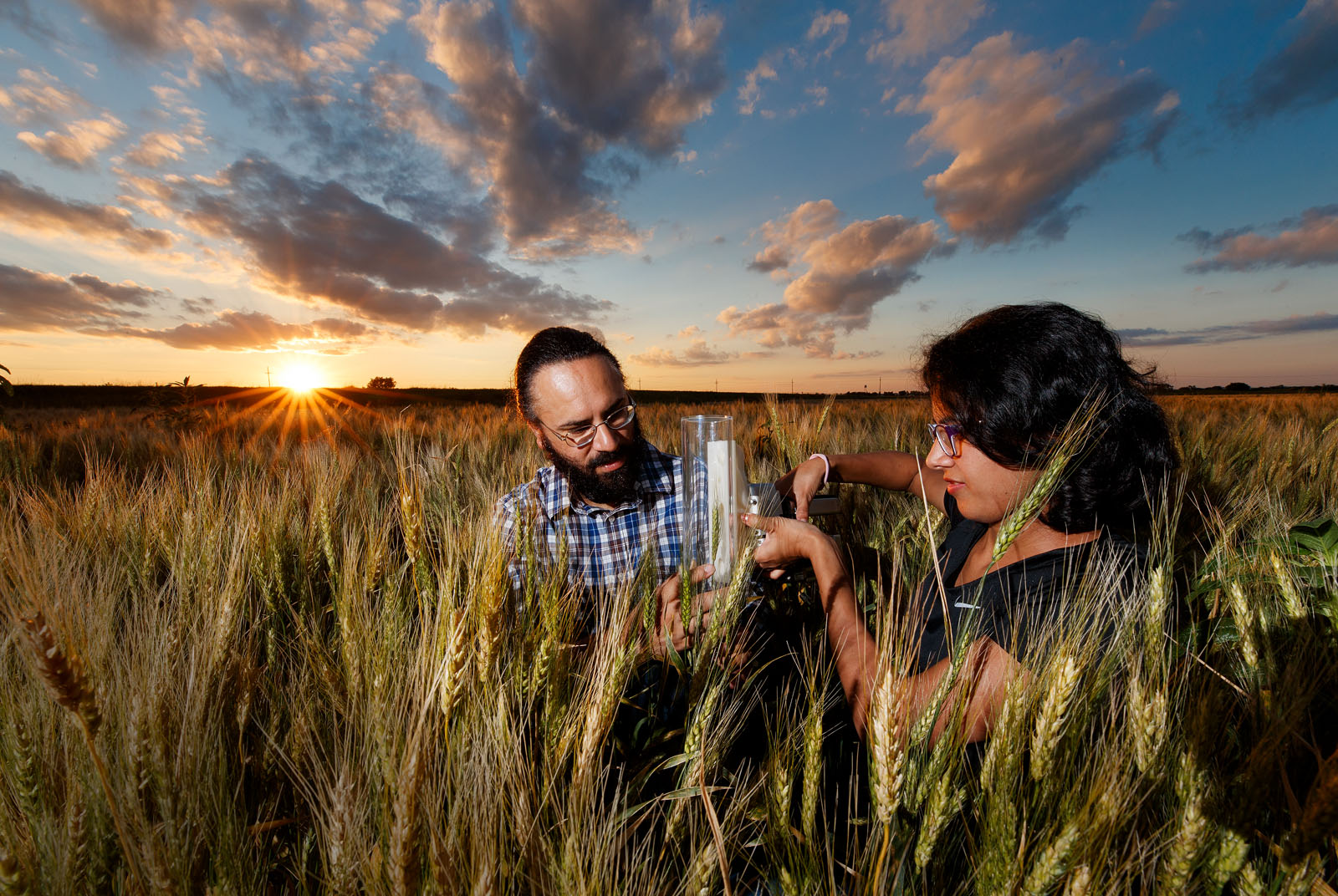Protecting Crops in a Warmer World
Higher temperatures caused by climate change aren’t just increasing the number of daytime scorchers. Nights are getting warmer as well, stressing plants and decreasing yields of vital crops worldwide.
Nebraska plant pathologist Harkamal Walia aims to make wheat and rice, two major cereal crops, more resilient to the stress from higher nighttime temperatures. He and his team earned a four-year, $5.78 million grant from the National Science Foundation’s Established Program to Stimulate Competitive Research for this work.

“Wheat and rice combined provide more of the calories that humans consume than all other plant-based crops globally,” said Walia, associate professor of agronomy and horticulture. For rice, every 1-degree increase in the average minimum low temperature decreases yields by 10 percent, he added. The impact on wheat is less known.
Walia’s team aims to identify rice and wheat genes that help some varieties better withstand nighttime temperature stress.
The Nebraska team uses a sophisticated phenotyping system that takes high-resolution images of the plants as they endure simulated nighttime conditions. Software processes the images, detecting daily differences in each variety’s physical characteristics, such as wilting, that are invisible to the human eye. Matching slight variations with differences in each plant’s genetic makeup allows researchers to identify the genes responsible for heat tolerance.
“Nebraska is perfectly poised to lead research of this kind because we’ve invested in state-of-the-art plant phenotyping infrastructure.”
Harkamal Walia
This knowledge will help scientists develop rice and wheat crops better able to tolerate the effects of climate change.
The multidisciplinary project includes researchers from computer science and engineering, animal science, biochemistry, biological sciences and statistics.
“Nebraska is perfectly poised to lead research of this kind because we’ve invested in state-of-the-art plant phenotyping infrastructure,” Walia said.
He’s also collaborating with researchers at Arkansas State University and Kansas State University to study and test heat stress under field conditions.
+ Additional content for Protecting Crops in a Warmer World
University leads research into heat-tolerant crops